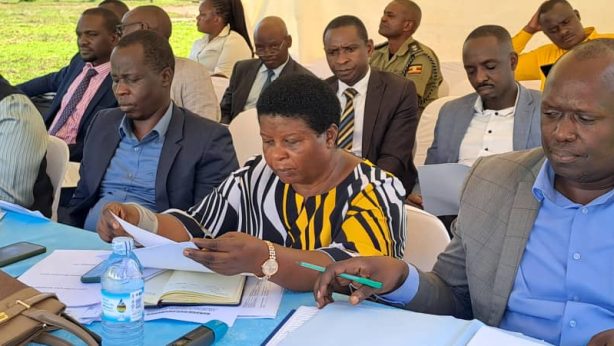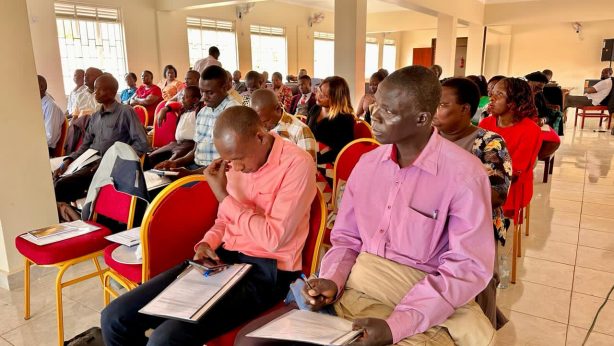Transformative Impact of Toilets in Mitigating Gender-Based Violence Against Women
In the heart of the village of Nsango, located in the Mbogwe district, one cannot help but notice numerous freshly dug pits, forming the foundations of small, mud-brick or grass-covered circular structures. A conversation with the locals reveals that the villagers have recently embarked on a communal initiative to build toilets, marking a significant shift in their community dynamics.
“Currently, we have many toilets. People have constructed both permanent and traditional toilets. Some are still in the process of digging. As you walk through the village now, you’ll find numerous pits, and completed toilets are also on the rise,” says Zakaria Anthony, the Village Chairman of Nsango.
This surge in toilet construction has been particularly noteworthy over the past two years. Before that, villagers lacked proper toilet facilities, according to leaders and residents of Nsango.
Nsango, situated in the Iponya ward within the Mbogwe district, is one of the villages bordering the Kigosi National Reserve. Historically, before the increase in the village population and settlements, thickets and wilderness dominated the landscape. As a result, in addition to providing firewood, the villagers also utilized these areas for their privacy.
The absence of toilets and open defecation not only posed health risks, such as the outbreak of diseases like cholera, but it also led to conflicts among neighbours and even between spouses.
“Having one person own a toilet resulted in conflicts. It created significant disputes among neighbours. People stopped constructing toilets, saying, ‘I cannot dig my own toilet, only for the entire village to use it,'” explains Sofia Mapera Nyanda, a villager.
Sofia vividly recalls the challenges women faced during the rainy season when finding suitable places for privacy became difficult. These times often led to frequent conflicts with her husband due to the long distances she had to travel to find a suitable spot.
“As women, we are cautious; you cannot stay close; you must go far away. But men can just crouch nearby. So, if you take a bit longer, you might face consequences. He’ll ask, ‘Where have you been all this time?’ even when he knows you went far for privacy. Still, he assumes you were elsewhere,” says Sofia.
Anthony, who moved to Nsango with his parents at a young age and started primary school in the village, began noticing the toilet issue in his youth. Initially finding it peculiar, he eventually grew accustomed to it, much like other villagers.
“In our youth, there was only one household here. You had to walk several kilometres to find it. Meaning, there were many wilderness areas, and if someone felt the urge, they would just use the wild. The village expanded, and with more houses, leaders faced a considerable challenge in persuading villagers to build toilets. Each time leaders urged them to construct toilets, villagers came up with new excuses,” Anthony adds.
Mabula Peter, the Village Executive Officer, was transferred to Nsango for work in 2012 from Bhusambilo village. Upon arrival, addressing the lack of toilets became one of his initial priorities. However, the execution faced challenges due to political interference.
“We held a village government meeting and a whole campaign, giving ourselves a month. Anyone without a toilet would be apprehended. We arrested many initially. However, after the arrests, some fled and sought refuge with the ward councilor. The councilor then held an evening meeting with the villagers, stating that he didn’t want the arrests to continue. Consequently, the villagers felt empowered, and the entire toilet-digging campaign was left to those who understood that having a toilet is a benefit to their families,” says Peter.
Within the last two years, there have been significant changes in toilet construction in Nsango. According to the village executive, they have achieved approximately 80%, with more ongoing constructions.
“Having a toilet at home has eliminated the struggle of walking long distances, being rained on, and not having conflicts with my husband anymore,” says Sofia.
The success of this transformation can be attributed in large part to the introduction of community engagement through the ‘Uraghbishi’ (Change Agents) initiative in Nsango two years ago. Uraghbishi is a program implemented in the Mbogwe district by the Mbogwe Network of Uraghbishi (MBODANET) in collaboration with Twaweza and the guidance of TAMISEMI. The program aims to change citizens’ attitudes and perceptions about development, encouraging them to participate and collaborate with leaders in identifying, analyzing, and addressing challenges and priorities in their communities for development.
Uraghbishi representatives visited each hamlet, engaging with various groups to identify challenges, obstacles, and opportunities for development. Toilet issues emerged as the top priority during the public feedback meeting. Other priorities included access to clean water and healthcare services.
According to village leaders, Uraghbishi succeeded in addressing toilet issues because they were able to visit every hamlet and household, discussing the matter with citizens. All community groups had the opportunity to voice their challenges and contribute ideas on how to address them. Since toilet issues originated from the citizens themselves, monitoring by Uraghbishi and leaders during implementation was not challenging, as the citizens were already motivated, having recognized it as their own cause.
“As the chairman, I feel relieved that I have achieved this. All those who preceded me could not do it,” says Anthony.
When citizens are listened to, and their opinions, thoughts, and experiences are considered and acted upon, it builds trust and cooperation between the community and their leaders. With this success, the enthusiasm for development among citizens has increased, and they continue to implement other priorities, including the construction of a health center.
This article by Richard Temu, a Senior Voice and Participation Program Officer at Twaweza East Africa, was originally published in the Daily Newspaper.


